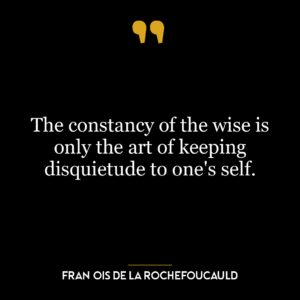Love in the form of longing and deprivation lowers the self regard” is a profound reflection on the nature of love and its impact on our self-esteem. This quote suggests that when love is experienced as a state of constant yearning or as a lack of something essential, it can lead to a diminished sense of self-worth.
In this context, longing refers to an intense desire for someone or something that is not present or not attainable. Deprivation, on the other hand, denotes a state of not having something that is needed or wanted. When love is expressed or experienced in these forms, it can lead to feelings of inadequacy, as the individual may feel they are not enough to attract or keep the object of their desire. This can result in a lower self-regard or self-esteem.
This idea can be applied in today’s world in various ways. For instance, in the realm of romantic relationships, one may long for a partner who is emotionally unavailable or unattainable, leading to feelings of inadequacy and lower self-esteem. Similarly, in the context of social media, people often long for the lifestyles or appearances of others, which can lead to feelings of deprivation and lower self-regard.
In terms of personal development, understanding this concept can be crucial. It highlights the importance of cultivating self-love and self-esteem independent of external factors. It suggests that one should strive for a love that is fulfilling and affirming, rather than one that is characterized by longing and deprivation. This can be achieved by setting healthy boundaries, practicing self-care, and cultivating a strong sense of self-worth.
Furthermore, it underscores the importance of understanding and addressing the root causes of these feelings of longing and deprivation. For instance, they could stem from unresolved childhood issues, societal pressures, or unhealthy relationship patterns. By addressing these issues, individuals can work towards developing healthier relationships and improving their self-esteem.







